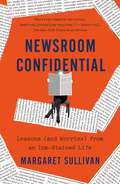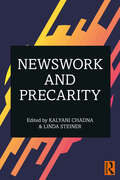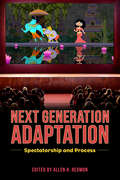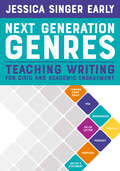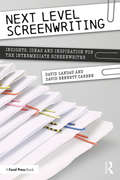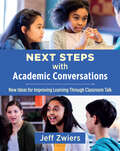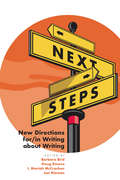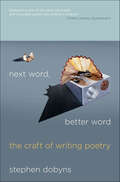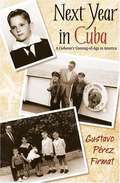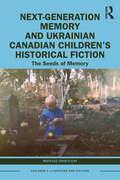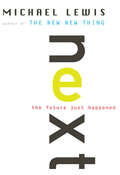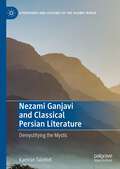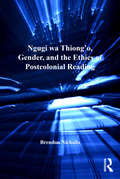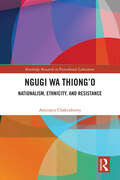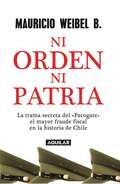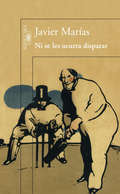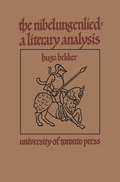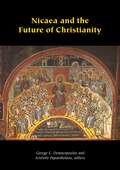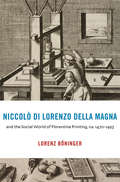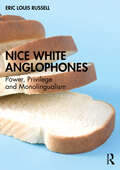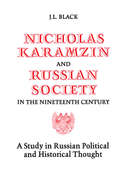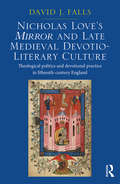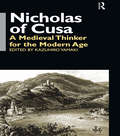- Table View
- List View
Newsroom Confidential: Lessons (and Worries) from an Ink-Stained Life
by Margaret Sullivan"Sullivan remains the critic American journalism requires, a veteran practitioner with street cred, still in touch with the ‘unaccountable joy’ of reporting and writing that continues to draw talented young people to the field.” —Steve Coll, The New York Times Book ReviewSullivan began her career at the Buffalo News, where she rose from summer intern to editor in chief. In Newsroom Confidential she chronicles her years in the trenches battling sexism and throwing elbows in a highly competitive newsroom. In 2012, Sullivan was appointed the public editor of The New York Times, the first woman to hold that important role. She was in the unique position of acting on behalf of readers to weigh the actions and reporting of the paper's staff, parsing potential lapses in judgment, unethical practices, and thorny journalistic issues. Sullivan recounts how she navigated the paper’s controversies, from Hillary Clinton's emails to Elon Musk's accusations of unfairness to the need for greater diversity in the newsroom. In 2016, having served the longest tenure of any public editor, Sullivan left for the Washington Post, where she had a front-row seat to the rise of Donald Trump in American media and politics.With her celebrated mixture of charm, sharp-eyed observation, and nuanced criticism, Sullivan takes us behind the scenes of the nation's most influential news outlets to explore how Americans lost trust in the news and what it will take to regain it.
Newswork and Precarity
by Linda Steiner Kalyani ChadhaThis edited collection brings together leading scholars from around the world to discuss the consequences and implications of precarious labor conditions within the modern news industry. In 14 original chapters, contributors address global concerns in journalism across all platforms, based on the assumption that unstable employment conditions affect the extent to which journalists can continue to play their historically crucial role in sustaining democracies. Topics discussed include work conditions for freelancers and entrepreneurial journalists as well as the risks facing conflict reporters, precarity in media start-ups, unionization and other collective efforts, policies regulating journalistic labor around the world, and the impact of hedge fund money on newswork. Drawing on case studies and data from South America, Africa, the United States, Canada, Mexico, the United Kingdom, and continental Europe, the book highlights how media outlets are forcing newsworkers to work harder for less money, and few countries are proactive in alleviating the precarity of journalists. Newswork and Precarity is a valuable addition to an important still-emerging area in journalism studies that will be of interest to both professionals and scholars of journalism, media studies, sociology, and labor history.
Next Generation Adaptation: Spectatorship and Process
by Allen H. RedmonContributions by Zoe Bursztajn-Illingworth, Marc DiPaolo, Emine Akkülah Doğan, Caroline Eades, Noelle Hedgcock, Tina Olsin Lent, Rashmila Maiti, Allen H. Redmon, Jack Ryan, Larry T. Shillock, Richard Vela, and Geoffrey Wilson In Next Generation Adaptation: Spectatorship and Process, editor Allen H. Redmon brings together eleven essays from a range of voices in adaptation studies. This anthology explores the political and ethical contexts of specific adaptations and, by extension, the act of adaptation itself. Grounded in questions of gender, genre, and race, these investigations focus on the ways attention to these categories renegotiates the rules of power, privilege, and principle that shape the contexts that seemingly produce and reproduce them. Contributors to the volume examine such adaptations as Quentin Tarantino’s Death Proof, Jacques Tourneur’s Out of the Past, Taylor Sheridan’s Sicario and Sicario: Day of the Soldado, Jean-Jacques Annaud’s Wolf Totem, Spike Lee’s He’s Got Game, and Jim Jarmusch’s Paterson. Each chapter considers the expansive dialogue adaptations accelerate when they realize their capacity to bring together two or more texts, two or more peoples, two or more ideologies without allowing one expression to erase another. Building on the growing trends in adaptation studies, these essays explore the ways filmic texts experienced as adaptations highlight ethical or political concerns and argue that spectators are empowered to explore implications being raised by the adaptations.
Next Generation Genres: Teaching Writing For Civic And Academic Engagement
by Jessica Singer EarlyStudents need updated writing genres, and a real reason to write. Evolutions in technology and connectivity have brought about significant changes in the ways writing is produced and shared. Yet despite monumental shifts in the practice of writing, how we teach writing has remained largely static. What we need is a new set of genres for writing instruction: genres that will speak to students who are already immersed in rich and multifaceted literacy practices through social media, gaming, and new technologies. Jessica S. Early’s Next Generation Genres provides an alternative framework for a secondary writing curriculum that places a central emphasis on helping students gain the experience they need to write with confidence in academic and civic life. If your students’ eyes glaze over when they face a standard essay assignment, perhaps it’s time to let them try writing an infographic or a podcast!
Next Level Screenwriting: Insights, Ideas and Inspiration for the Intermediate Screenwriter
by David Landau David CarrenNext Level Screenwriting is an intermediate screenwriting book, for those that have already learned the basics of screenwriting, written a screenplay or two and want to bring their writing and stories to the next level. Each chapter of the book examines a specific aspect of screenwriting, such as character, dialogue and theme, and then provides the reader with ideas, tips and inspiration to apply to their own writing. Rather than being another “how to” book, this volume features a variety of case studies and challenging exercises throughout – derived from a broad selection of successful feature films and TV shows from the 1940s to the present day – to help spark the imagination of the writer as they work through different styles and approaches of screenwriting.An absolute must-read for any screenwriter wanting to improve their writing and storytelling skills.
Next Steps with Academic Conversations: New Ideas for Improving Learning Through Classroom Talk
by Jeff ZwiersDr. Jeff Zwiers, an educational researcher at Stanford University, has spent the last 15 years analyzing classroom conversations to see how they can be better used and improved in classroom settings. Teachers who have worked with him report significant growth in students&’ engagement, content learning, language, creativity, and sense of agency. Zweirs introduced his initial vision for classroom conversations Academic Conversations: Classroom Talk that Fosters Critical Thinking and Content Understanding. His follow-up book, Next Steps with Academic Conversations: New Ideas for Improving Learning Through Classroom Talk , expands the first book with updated classroom strategies and practices. In this new version, teachers will discover: How to introduce buildable ideas and teach students how to develop and support them Equitable classroom discussions and how diverse backgrounds conversing can benefit social skills and emotional intelligence Highlights of new research-based theories on classroom conversation Ways to develop students' confidence in conversation and how classroom skills can apply to real world interactions This resource is the product of his extensive research, co-teaching, and collaborating with a wide range of educators. It was written for busy teachers who want a practical guide for strengthening the quality and quantity of productive conversations in their lessons.
Next Steps: New Directions for/in Writing about Writing
by Nancy Wilson Rebecca Jackson Elizabeth Wardle Linda Adler-Kassner Christian Smith Christina Grant Elizabeth Kleinfeld Jennifer DeWinter Rebecca Robinson Emma Gaier Megan Wallace Lisa Tremain Hiroki Sugimoto Joy Arbor Valerie Vera Gwen Hart Mysti Rudd Kristen Di Gennaro Cat Mahaffey Shawn Casey Andrew Ogilvie Olga Aksakalova Dominique Zino Andrew Lucchesi Gabriel Cutrufello Michael Michaud Sarah Read Francis Johnson Samuel Stinson Rebecca Nowacek Kimberly Hoover Elle Limesand Maggie Hammond Max Wellman Matthew Bryan Kevin Roozen Nicole Stack Christy I. Wenger Gabrielle Frick Patrick Siebel Katie Jo LaRiviereNext Steps: New Directions for/in Writing about Writing is the first collection of teacher and student voices on a writing pedagogy that puts expert knowledge at the center of the writing classroom. More than forty contributors report on implementations of writing-about-writing pedagogies from the basic writing classroom to the graduate seminar, in two-year and four-year schools, and in small colleges and research universities around the United States and the world. For more than ten years, WAW approaches have been emerging in all these sites and scenes of college writing instruction, and Next Steps offers an original look at the breadth of ways WAW pedagogy has been taken up by writing instructors and into an array of writing courses. Organized by some of the key foci of WAW instruction—writerly identity, process, and engagement—the book takes readers into thick classroom descriptions as well as vignettes offering shorter takes on particular strategies. The classroom descriptions are fleshed out in more personal ways by student vignettes, reflections on encountering writing about writing in college writing classes. As its theoretical basis, Next Steps includes chapters on threshold concepts, transfer of writing-related learning, and the history of WAW pedagogies. As the first extensive look into WAW pedagogies across courses and institutions, Next Steps is ideal for writing instructors looking for new approaches to college composition instruction or curious about what “writing about writing” pedagogy actually is, for graduate students in composition pedagogy and their faculty, and for those researching composition pedagogy, threshold concepts, and learning transfer. Contributors: Linda Adler-Kassner, Olga Aksakalova, Joy Arbor, Matthew Bryan, Shawn Casey, Gabriel Cutrufello, Jennifer deWinter, Kristen di Gennaro, Emma Gaier, Christina Grant, Gwen Hart, Kimberly Hoover, Rebecca Jackson, Frances Johnson, Elizabeth Kleinfeld, Katie Jo LaRiviere, Andrew Lucchesi, Cat Mahaffey, Michael Michaud, Rebecca S. Nowacek, Andrew Ogilvie, Sarah Read, Rebecca Robinson, Kevin Roozen, Mysti Rudd, Christian Smith, Nichole Stack, Samuel Stinson, Hiroki Sugimoto, Lisa Tremain, Valerie Vera, Megan Wallace, Elizabeth Wardle, Christy I. Wenger, Nancy Wilson, Dominique Zino
Next Word, Better Word: The Craft of Writing Poetry
by Stephen DobynsThis accessible writer's guide provides a helpful framework for creating poetry and navigates contemporary concerns and practices. Stephen Dobyns, author of the classic book on the beauty of poetry, Best Words, Best Order, moves into new terrain in this remarkable book. Bringing years of experience to bear on issues such as subject matter, the mechanics of poetry, and the revision process, Dobyns explores the complex relationship between writers and their work. From Philip Larkin to Pablo Neruda to William Butler Yeats, every chapter reveals useful lessons in these renowned poets' work. Both enlightening and encouraging, Next Word, Better Word demystifies a subtle art form and shows writers how to overcome obstacles in the creative process.
Next Year Country
by Lorney Faber"Next Year Country" is a heartwarming story -a true account-of Lomey Fa- ber's experiences on a Montana ranch. Writing with tenderness and an obvious love of nature, she describes the pleasures and hardships of a rancher's life; his pioneering spirit, often surviving on little more than faith; and his innate desire, as self-appointed guardian of the land, to preserve the environment. As the title suggests, her story is one of hope -and the promise of tomorrow. As you read it you'll share her love of the land, her appreciation of God's creation, and the joy she finds in living in harmony with nature. Perhaps you'll also be reminded that perseverance and determination can make all things possible.
Next Year in Cuba: A Cubano's Coming-of-Age in America
by Gustavo Pérez FirmatThis is a personal account of a young Cuban's departure from his native country and his assimilation of American culture and values, including marriage to an American, raising an American family, teaching at an American university....
Next-Generation Memory and Ukrainian Canadian Children’s Historical Fiction: The Seeds of Memory (Children's Literature and Culture)
by Mateusz ŚwietlickiThis is the first book monograph devoted to Anglophone Ukrainian Canadian children’s historical fiction published between 1991 and 2021. It consists of five chapters offering cross-sectional and interdisciplinary readings of 41 books – novels, novellas, picturebooks, short stories, and a graphic novel. The first three chapters focus on texts about the complex process of becoming Ukrainian Canadian, showcasing the experiences of the first two waves of Ukrainian immigration to Canada, including encounters with Indigenous Peoples and the First World War Internment. The last two chapters are devoted to the significance of the cultural memory of the Holodomor, the Great Famine of 1932-1933, and the Second World War for Ukrainian Canadians. All the chapters demonstrate the entanglements of Ukrainian and Canadian history and point to the role Anglophone children’s literature can play in preventing the symbolical seeds of memory from withering. This volume argues that reading, imagining, and reimagining history can lead to the formation of beyond-textual next-generation memory. Such memory created through reading is multidimensional as it involves the interpretation of both the present and the past by an individual whose reality has been directly or indirectly shaped by the past over which they have no influence. Next-generation memory is of anticipatory character, which means that authors of historical fiction anticipate the readers – both present-day and future – not to have direct links to any witnesses of the events they discuss and to have little knowledge of the transcultural character of the Ukrainian Canadian diaspora.
Next: The Future Just Happened
by Michael LewisThe New York Times bestseller. "His book is a wake-up call at a time when many believe the net was a flash in the pan."--BusinessWeek With his knowing eye and wicked pen, Michael Lewis reveals how the Internet boom has encouraged changes in the way we live, work, and think. In the midst of one of the greatest status revolutions in the history of the world, the Internet has become a weapon in the hands of revolutionaries. Old priesthoods are crumbling. In the new order, the amateur is king: fourteen-year-olds manipulate the stock market and nineteen-year-olds take down the music industry. Unseen forces undermine all forms of collectivism, from the family to the mass market: one black box has the power to end television as we know it, and another one may dictate significant changes in our practice of democracy. With a new afterword by the author.
Nexus Analysis: Discourse and the Emerging Internet
by Suzie Wong ScollonNexus Analysis presents an exciting theory by two of the leading names in discourse analysis and provides a practical guide to its application. The authors argue that discourse analysis can itself be a form of social action. If the discourse analyst is part of the nexus of practice under study, then the analysis can itself transform that nexus of practice. Focussing on their own involvement with and analysis of pioneering communication technologies in Alaska they identify moments of social importance in order to examine the links between social practice, culture and technology. Media are identified not only as means of expressing change but also as catalysts for change itself, with the power to transform the socio-cultural landscape. In this intellectually exciting yet accessible book, Ron Scollon and Suzie Wong Scollon present a working example of their theory in action and provide a personal snapshot of a key moment in the history of communication technology, as the Internet transformed Alaskan life.
Nezami Ganjavi and Classical Persian Literature: Demystifying the Mystic (Literatures and Cultures of the Islamic World)
by Kamran TalattofThis book offers new insights into the twelfth-century Persian poet Nezami Ganjavi. Challenging the dominant interpretation of Nezami’s poetry as the product of mysticism or Islam, this book explores Nezami’s literary techniques such as his pictorial allegory and his profound conceptualization of poetry, rhetoric, and eloquence. It employs several theoretical and methodological approaches to clarify the nature of his artistic approach to poetry. Chapters explore Nezami’s understanding of rhetoric and literature as Sakhon, his interest in literary genres, the diversity of themes explored in his Five Treasures, the sources of Nezami’s creativity, and his literary devices. Exploring themes such as love, religion, science, wine, gender, and philosophy, this study compares Nezami’s works to other giants of Persian poetry such as Ferdowsi, Jami, Rudaki, and others. The book argues that Nezami’s main concern was to weave poetry rather than to promote any specific ideology.
Ngugi wa Thiong’o, Gender, and the Ethics of Postcolonial Reading
by Brendon NichollsThis is the first comprehensive book-length study of gender politics in Ngugi wa Thiong'o's fiction. Brendon Nicholls argues that mechanisms of gender subordination are strategically crucial to Ngugi's ideological project from his first novel to his most recent one. Nicholls describes the historical pressures that lead Ngugi to represent women as he does, and shows that the novels themselves are symptomatic of the cultural conditions that they address. Reading Ngugi's fiction in terms of its Gikuyu allusions and references, a gendered narrative of history emerges that creates transgressive spaces for women. Nicholls bases his discussion on moments during the Mau Mau rebellion when women's contributions to the anticolonial struggle could not be reduced to a patriarchal narrative of Kenyan history, and this interpretive maneuver permits a reading of Ngugi's fiction that accommodates female political and sexual agency. Nicholls contributes to postcolonial theory by proposing a methodology for reading cultural difference. This methodology critiques cultural practices like clitoridectomy in an ethical manner that seeks to avoid both cultural imperialism and cultural relativisim. His strategy of 'performative reading,' that is, making the conditions of one text (such as folklore, history, or translation) active in another (for example, fiction, literary narrative, or nationalism), makes possible an ethical reading of gender and of the conditions of reading in translation.
Ngugi wa Thiong’o: Nationalism, Ethnicity, and Resistance (Routledge Research in Postcolonial Literatures)
by Amitayu ChakrabortyAs a part of Routledge Research in Postcolonial Literature, the book explores the complex of ways in which Ngugi wa Thiong’o wrestles with issues of nationalism and ethnicity through his politically subversive and creatively intense literary texts. His novels and plays are fraught with his anxiety, resistance, and defiance concerning Gikuyu ethnicity, Kenyan nationalism, and a curious, globalectic imaginary. In this way, the book re- appreciates Ngugi offering scholarly insights into the present debates over identity politics as well as aesthetics that animate contemporary research in postcolonial studies, world literature, and African studies across the globe.
Ni orden ni patria: La trama secreta del <<Pacogate>> el mayor fraude fiscal en la historia de Chile
by Mauricio Weibel<P>La trama de los errores y excesos que han puesto a Carabineros de Chile en su peor momento Ni orden ni patria es la investigación al fondo del caso de corrupción pública más grande de la historia reciente de nuestro país. Cuando Chile aún no se recupera del llamado "Milicogate", el caso que dejó al descubierto el enorme desfalco en el Ejército, se descubrió un fraude todavía mayor. <P> El trabajo de Mauricio Weibel, autor de Traición a la patria, revela en detalle el modus operandi que involucró a un centenar de complotados, entre ellos altos oficiales, que permitió robarle al país más de 28 mil millones de pesos. Una historia que arranca en las oficinas y hogares de los oficiales que integraron la "Mafia de la Intendencia", para luego atravesar por los diferentes robos cometidos durante una década. <P>De cómo el descaro del alto mando y la Dirección General arrastró imprudentemente a la institución al descrédito con situaciones como la increíble "Operación Huracán" y la posterior remoción de generales investigados por el uso fraudulento de gastos reservados.
Ni se les ocurra disparar
by Javier MaríasJavier Marías, además de un inmenso escritor, es para muchos un punto de referencia en el análisis de la actualidad, y su columna dominical es una de las más leídas y comentadas de la prensa española. Ni se les ocurra disparar recoge cerca de un centenar de artículos publicados por Javier Marías entre 2009 y 2011 en El País Semanal. Con una prosa elegante, franca y sin ambages, que no necesita adornos para alcanzar la conciencia del lector con un disparo certero, para remover sus entrañas o, al contrario, reconfortarlo, el autor nos presenta su particular percepción del mundo y de su entorno. En esta recopilación encontramos al Javier Marías más cercano y reflexivo, preocupado por la realidad que lo rodea. La sumisión y deliberada idiotización de las sociedades contemporáneas, la irresponsabilidad e ineptitud de los políticos, las vicisitudes de la creación artística o la evocación de mundos perdidos y fugazmente recuperados son algunos de los temas sobre los que el gran novelista nos ofrece su mirada más sincera y personal.
Nibelungenlied: A Literary Analysis
by Hugo BekkerIn the last fifty or so years there has been a gradual shift of attention in scholarship on the Nibelungenlied from reconstruction of the texts, and tracings of the poem's multiple and complex antecedents, to interpretation. In spite of this trend, there is still a pressing need for a critical analysis of the Nibelungenlied as a whole that draws together its various literary qualities and examines in detail the epic's unity, depth, and meaning. Professor Bekker's study provides this kind of analysis. It takes a fresh approach, viewing the poem as a work of literary merit worthy to be read for its own sake. It traces the new designs which the poet brings to the Nibelungen tradition and provides detailed examinations of the main aspects of technique and structure in the epic. The approach is based on close consultation of the text, with little digression, in an attempt to guide the reader to an understanding and appreciation of the poem as the author intended it to be read.Professor Bekker points out that the poet of the Nibelungenlied does not aim at psychological character delineation and deliberately refrains from seeking to establish the various prominent figures in the epic as individuals in the modern sense of the term. Instead, they emerge as representative figures whose interrelationships, though interesting, are less important for the unity and meaning of the epic than are their common relationships to the world in which they exist. The question of personal guilt or innocence becomes irrelevant, and Professor Bekker sees the work ultimately as poetic pageant of a noble way of life and its destruction. Symbolism, imagery, parallelism, symmetry, and other structural devices all contribute to the design which expresses the nature of this noble life, and Professor Bekker's book is a valuable guide to the complex architecture of this thirteenth-century masterpiece.
Nicaea and the Future of Christianity (Orthodox Christianity and Contemporary Thought)
by George E. Demacopoulos and Aristotle PapanikolaouCommemorating the 1700th anniversary of the Council of Nicaea, this volume offers an original examination of the enduring impact of the single most famous gathering of Christians since the apostolic ageDespite the longstanding historical and theological study of the Council of Nicaea, several central questions remain. Was Nicaea a theological event or a political one? What does it mean if it was both? Was Constantine’s intervention without precedent, or was he simply continuing a long-standing role of a Roman emperor who was responsible for leading a religious cult (albeit now for a different faith tradition)? And what about the actual theological debates of Nicaea and our ability to understand them? Scholars might never exhaust this avenue of inquiry, despite the numerous studies in recent decades.For many scholars and Christian activists today, the significance of Nicaea centers around the idea of conciliarity and what this has meant, both historically and theologically, for the Christian community. Why and how did Nicaea become foundational for thinking that the church operates in a conciliar manner? How did that work historically in different parts of the Christian world? And how should it work today?Nicaea and the Future of Christianity offers a fresh, globally-diverse, ecumenically-minded approach to these questions with an impressive collection of both senior and junior scholars, reflecting a diversity of views within the Orthodox, Catholic, and Protestant traditions. The great benefit of this wide-ranging approach lies precisely in its ability to see the many ways in which Nicaea continues to speak to the future of Christianity.
Niccolò di Lorenzo della Magna and the Social World of Florentine Printing, ca. 1470–1493 (I Tatti studies in Italian renaissance history)
by Lorenz BöningerA new history of one of the foremost printers of the Renaissance explores how the Age of Print came to Italy. Lorenz Böninger offers a fresh history of the birth of print in Italy through the story of one of its most important figures, Niccolò di Lorenzo della Magna. After having worked for several years for a judicial court in Florence, Niccolò established his business there and published a number of influential books. Among these were Marsilio Ficino’s De christiana religione, Leon Battista Alberti’s De re aedificatoria, Cristoforo Landino’s commentaries on Dante’s Commedia, and Francesco Berlinghieri’s Septe giornate della geographia. Many of these books were printed in vernacular Italian. Despite his prominence, Niccolò has remained an enigma. A meticulous historical detective, Böninger pieces together the thorough portrait that scholars have been missing. In doing so, he illuminates not only Niccolò’s life but also the Italian printing revolution generally. Combining Renaissance studies’ traditional attention to bibliographic and textual concerns with a broader social and economic history of printing in Renaissance Italy, Böninger provides an unparalleled view of the business of printing in its earliest years. The story of Niccolò di Lorenzo furnishes a host of new insights into the legal issues that printers confronted, the working conditions in printshops, and the political forces that both encouraged and constrained the publication and dissemination of texts.
Nice White Anglophones: Power, Privilege and Monolingualism
by Eric Louis RussellNice White Anglophones: Privilege, Power and Monolingualism is an innovative work exploring race, power and ideology via an extended fictional case study centring on a monolingual white American family—“The Smiths”. The reader is invited to follow this seemingly “normal” white English-speaking family through their everyday life and think critically about their linguistic and cultural reality, what they do and, especially, what they do not do.What role does monolingual whiteness play in socioeconomics and politics? How do participants in language and culture reinforce dynamics that afford privilege and power to some and exclude others? And how does white monolingualism contribute to the ensmalling our cultural horizons? These themes are introduced through stories and explored in-depth through critical discussion questions, providing comprehensive coverage of monolingualism, race and power in a new and engrossing way.This intersectional work—part textbook, part case study, part dialogue and critical inquiry, is a new and original way to engage students and scholars of language and culture, power and race, as well as anyone interested in monolinguality and languaculture.
Nicholas Karamzin and Russian Society in the Nineteenth Century
by J. Laurence BlackNicholas Karamzin (1766-1826) was a remarkably active thinker and writer during a time that was trying to all Europeans. A first-hand witness to the French Revolution, Napoleonic suzerainty over Europe, the burning of Moscow, and the Decembrist revolt in St. Petersburg, he presented in his voluminous correspondence and published writings a world view that recognized the weaknesses of the Russian Empire and at the same time foresaw the dangers of both radical change and rigid autocracy. Russian conservatism owes much to this man, even though he would have agreed with very few of those who came after him and were called conservative: he supported autocracy, but was committed to enlightenment; he abhorred constitutions. The fact that his writing had lasting significance has rarely been challenged, but the social and political nature of that contribution has never before been demonstrated. Previous studies of Karamzin have dealt with his literary career. This monograph focuses on the final third of his life, on his career at court (1816-26) and on the cultural heritage he left to the Russian Empire. As the historian of Russia most widely read by his and later generations, his historical interpretations mirrored and helped shape the image Russians had of themselves. Professor Black's study of Karamzin is crucial to any examination of Russia's enlightenment, conservatism, historical writing, and national self-consciousness.
Nicholas Love's Mirror and Late Medieval Devotio-Literary Culture: Theological politics and devotional practice in fifteenth-century England
by David J. FallsSurviving in 59 complete manuscript versions, few English texts of the late medieval period seem to have achieved the popularity of Nicholas Love's fifteenth-century translation and adaptation of the Latin Meditationes Vitae Christi - The Mirror of the Blessed Life of Jesus Christ. The Mirror has received surprisingly little scholarly attention and is often contextualized in terms of its role in the theological conflict between English ecclesiastical orthodoxy and the teachings of heresiarch John Wycliff. David Falls presents a new account of the text's history which de-centralises, but does not disregard, the influence of the Wycliffite controversy. Falls interrogates preconceptions and investigates new possibilities for understanding the composition, circulation, function and use of Love's Mirror by examining both the textual modifications and additions made by Love in his adaptation of the Latin, and places these alterations in context by examining individual copies of the Mirror. The manuscript copies are read as both sites of literary consumption and nexuses of textual transition, demonstrating that it was Love's ability to inscribe his work with "functional diversity" which explains the Mirror's popularity. This book presents a nuanced picture not only of the Mirror's production, circulation and function, but also the dynamic and flourishing devotio-literary culture of late medieval England in which Love's text operated.
Nicholas of Cusa: A Medieval Thinker for the Modern Age
by Kazuhiko YamakiNicholas of Cusa (1401 64), doctor of canon law, church politician and philosopher, was one of the most important thinkers of 15th century Europe. This year marks the sixth centenary of his birth. Scholars from round the globe gathered in Tokyo for the 19th Cusanus Congress last year; this volume makes their contributions more widely available. Major themes examined include tradition and innovation, religion, the relevance of Nicholas of Cusa's thought for today, the relationship between East and West in his thought, and the development of his thought and scholarship as we enter a new millennium. Multilingual text: English, German, French.
